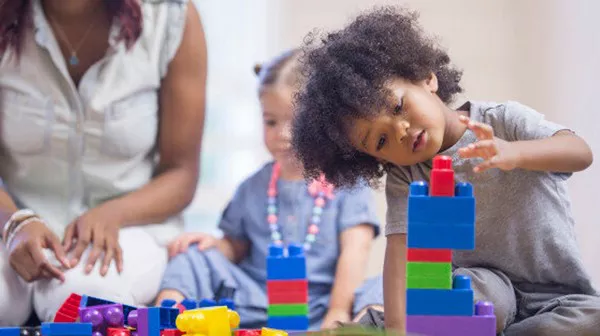In today’s fast-paced world, the role of early childhood teachers holds a special significance. These educators play a crucial part in nurturing and molding the young minds of the future. As we delve deeper into the reasons why early childhood teachers are so important, we uncover a plethora of benefits and reasons that underline their significance. In this article, we will explore six key aspects that make early childhood teachers a cornerstone of our society.
1. Fostering Holistic Development
Early childhood teachers are the architects of a child’s early years. They create a conducive learning environment where children grow emotionally, intellectually, and socially. These teachers understand the significance of age-appropriate activities and lessons that stimulate cognitive development. According to a study by the National Institute for Early Education Research (NIEER), children who attend high-quality preschool programs led by skilled educators exhibit better cognitive, language, and math skills, ensuring a strong foundation for future academic success.
In a more granular perspective, early childhood teachers excel at:
Cognitive Development: They introduce problem-solving activities and promote critical thinking from an early age.
Language Skills: Through storytime and interactive activities, they enhance vocabulary and language proficiency.
Mathematics: Educators create engaging ways to introduce basic mathematical concepts like counting, shapes, and patterns.
2. Nurturing Social and Emotional Intelligence
Early childhood is the phase where children develop their social and emotional skills, which are vital for their overall well-being. Teachers in this stage focus on teaching empathy, effective communication, and conflict resolution. A research report by the National Association for the Education of Young Children (NAEYC) highlights the importance of early educators in building strong emotional foundations, reducing behavioral issues, and preventing emotional distress later in life.
Subsequently, early childhood educators prioritize:
Emotional Literacy: Teaching children to recognize and express their emotions constructively.
Social Skills: Encouraging cooperation, sharing, and forming healthy relationships.
Conflict Resolution: Guiding children in resolving disputes peacefully.
3. Preparing Children for School Success
Early childhood teachers lay the groundwork for academic achievement in the coming years. A comprehensive report by the Center on Enhancing Early Learning Outcomes (CEELO) emphasizes how effective early education helps children transition smoothly into elementary school and perform better academically. It highlights that children who attend quality preschool programs tend to have higher standardized test scores, improved reading and math skills, and a greater likelihood of graduating from high school.
Early educators excel at:
Early Literacy: Fostering a love for reading and literacy, which are the building blocks of academic success.
Mathematics Proficiency: Instilling numerical concepts that prepare children for advanced math.
Self-regulation: Helping children learn to manage their behavior, a key aspect of school readiness.
4. Closing the Achievement Gap
Early childhood teachers play a crucial role in narrowing the achievement gap. Quality preschool education led by skilled teachers can significantly reduce disparities in learning outcomes among children from diverse socio-economic backgrounds. Data from the National Center for Education Statistics indicates that children from low-income families who attend quality preschool programs are more likely to catch up with their peers and have a better chance of academic success in the long run.
Key strategies employed include:
Individualized Support: Tailoring lessons to meet the specific needs of each child.
Inclusive Learning Environments: Creating classrooms that celebrate diversity and promote equity.
Collaboration with Parents: Engaging parents in their child’s education to ensure continuity of learning at home.
6. Strengthening the Parent-Teacher Partnership
Early childhood teachers understand the importance of a strong collaboration between parents and educators. Research by the National Association for Family Child Care (NAFCC) reveals that children benefit greatly when parents and teachers work together. This partnership ensures a consistent and supportive learning environment, further enhancing the child’s overall development.
Key areas of focus for building a strong parent-teacher partnership include:
Open Communication: Regular updates and communication channels to address concerns and share progress.
Parent Involvement: Encouraging parents to participate in classroom activities and school events.
Resource Sharing: Offering resources, tips, and guidance for parents to support their child’s learning journey at home.
In conclusion, early childhood teachers are the bedrock of society’s future. Their dedication, skills, and commitment to nurturing the next generation make them invaluable. The impact they have on a child’s holistic development, social and emotional intelligence, and academic success is immeasurable. Moreover, their role in closing the achievement gap and boosting language development is pivotal. Through a strong parent-teacher partnership, they ensure that every child receives the support they need. Early childhood teachers are truly the architects of a brighter future, laying the foundation for success, one child at a time.


